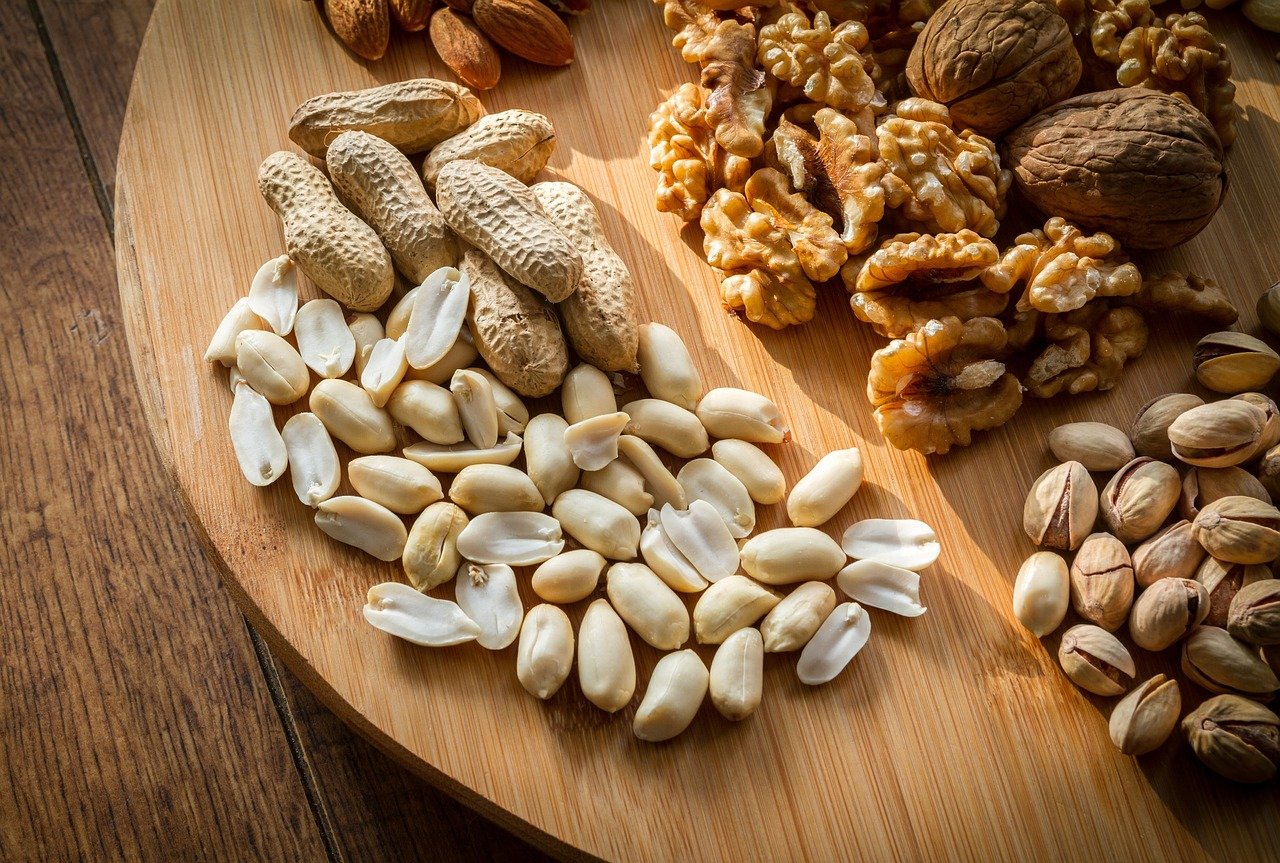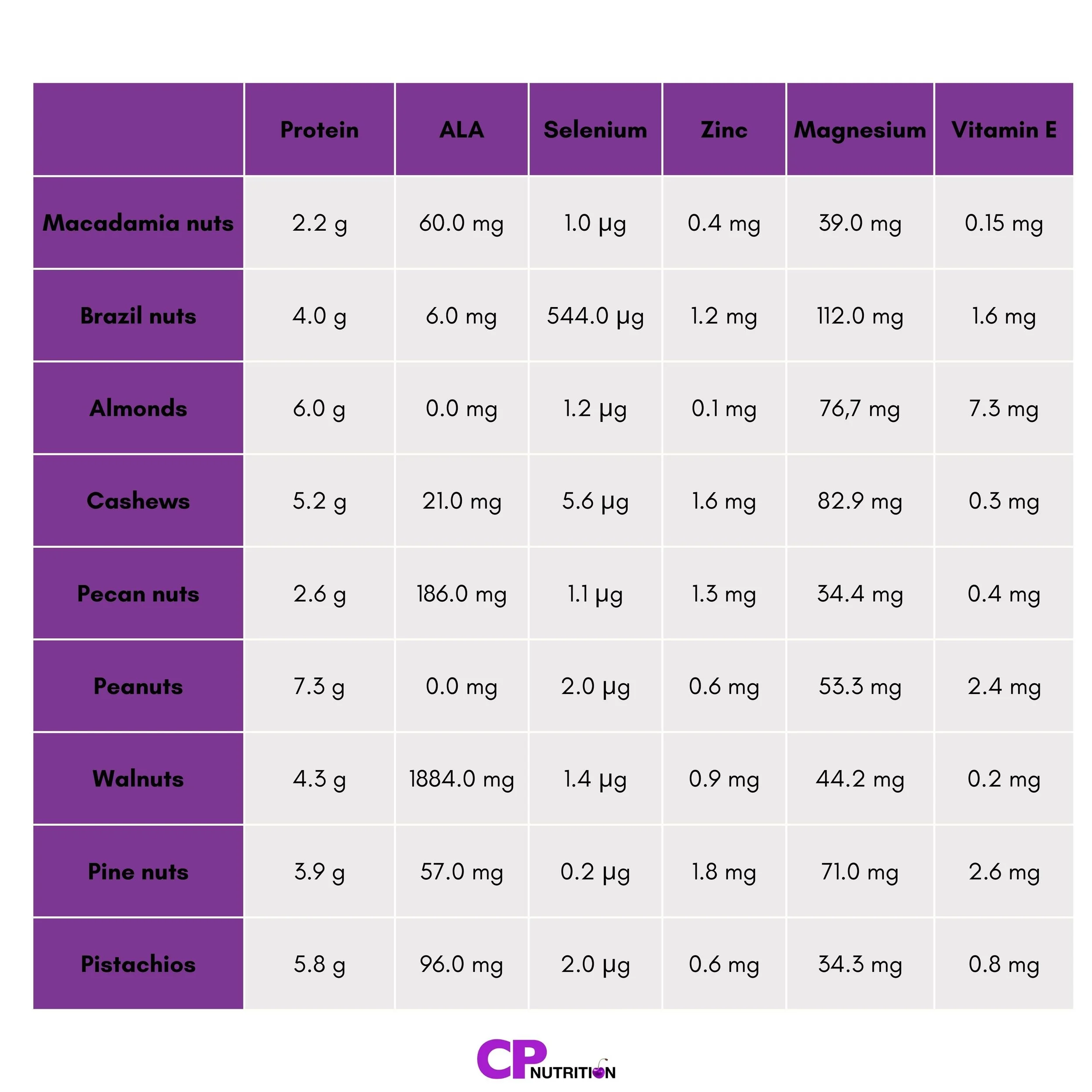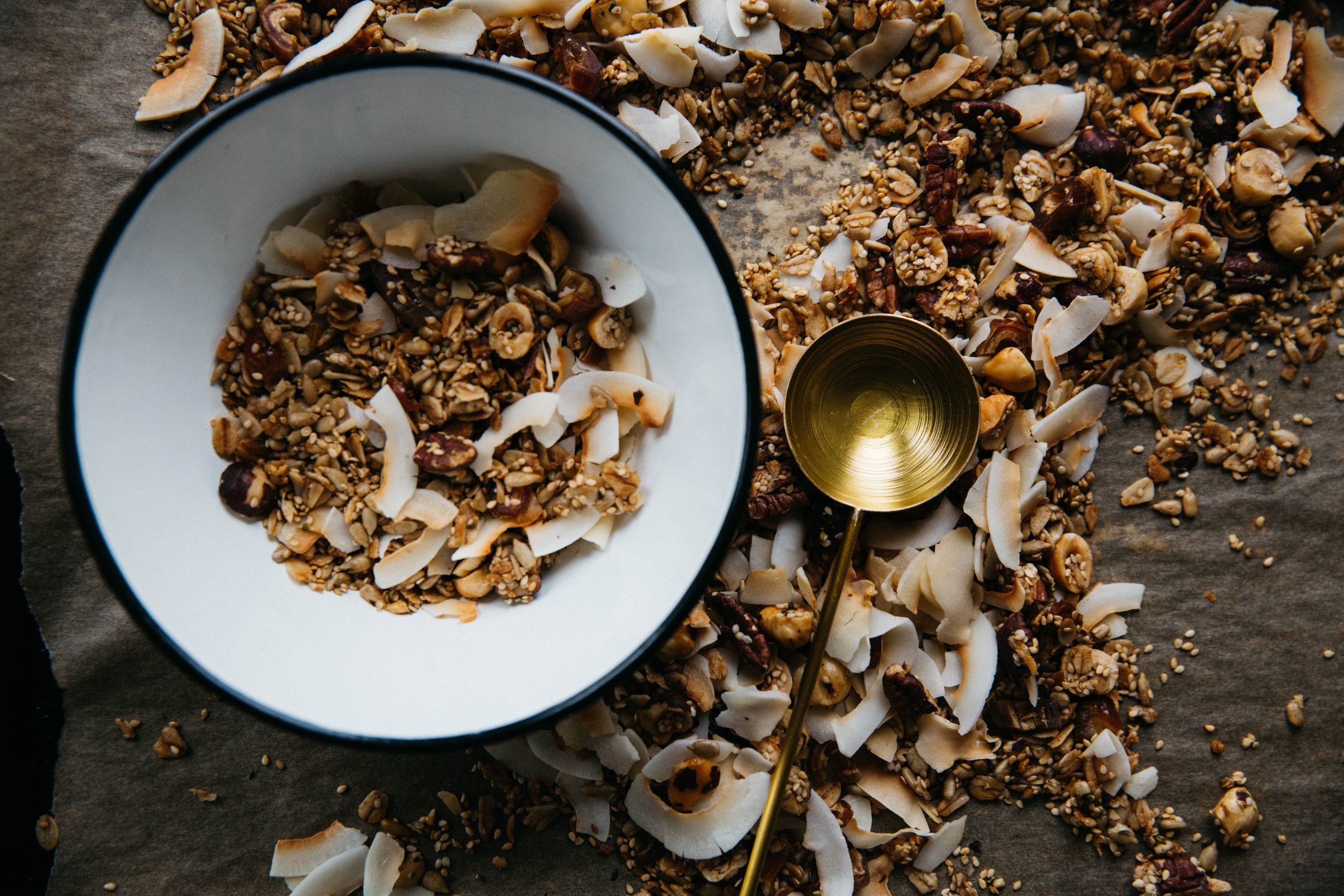Should you be eating Brazil nuts for fertility?
If you have been trying to get pregnant but are struggling to conceive naturally, you may have issues with fertility. Although this may be overwhelming at first, you are not alone. Around 1 in 6 adults struggle with infertility during their lifetime. Fortunately, a growing body of evidence suggests that both diet and lifestyle factors have a significant influence on fertility, meaning that making some changes to your diet may optimise your chances of having a baby naturally. If you have looked into what foods could help improve your fertility, you would have probably heard of the benefits of nuts for fertility. If you want to learn about the benefits of nuts to both your overall health and fertility, as well as what the best nuts for fertility are, this blog post is for you!
You may have come across some mixed messages when looking into the nutritional benefits of nuts but rest assured, nuts are an extremely nutrient rich food source that can provide excellent sources of fibre, protein, vitamins and minerals (1). Moreover, evidence from recent years has also shown that nuts can help defend human health, suggesting a correlation between nut consumption and a decrease in chronic disease risk (2). Nuts sometimes get a bad reputation due to their higher fat content however, this is mainly unsaturated fat which has many favourable effects on fertility and overall health (1).
In relation to the specific nutrients we find in nuts, we know that they can act as a source of fibre. Increasing fibre consumption may help prevent several diseases including obesity, cardiovascular disease and a range of digestive issues (2). In addition, nuts are very rich in various minerals and vitamins that have both antioxidant and anti-inflammatory properties, which can help defend our cells against damage (2).
Another important point to mention is sustainability. Eating nuts as a protein source instead of meat and dairy in some meals can make a huge impact towards the sustainability of your diet. So if you are someone who wants to pay more attention to the environmental impact of your diet, nuts are a great food source to consider!
Do nuts actually help with fertility?
Not only are nuts great for your overall health, but they have also been shown to improve both female and male fertility through supporting a whole range of functions including but not limited to egg quality, endometrial health and sperm motility and shape. (3)
As we mentioned previously, nuts are a great source of unsaturated fat, specifically omega-3 alpha linolenic acid (ALA) which is beneficial towards reproductive health. In the body, ALA is converted into another type of fatty acid called docosahexaenoic acid (DHA) which has been shown to have anti-inflammatory properties and play a critical role in development of the foetus (4).
Nuts - specifically Brazil nuts - are great sources of selenium, which has important roles in both male and female fertility. The antioxidant properties of selenium are able to protect both egg and sperm cells from oxidative damage in the body. In addition, studies have shown that selenium levels can also impact upon the growth and maturation of egg cells (5).
Zinc is another essential mineral for both male and female fertility. Our bodies cannot produce zinc so we need to make sure to obtain it through the diet and nuts are a great way to do this! In regards to male fertility, zinc has been down to improve sperm quality (both density and motility) (6). Adequate zinc levels in women have also been shown to improve conception and overall pregnancy outcomes (6).
Several types of nuts are excellent sources of magnesium. Magnesium plays an important role in a whole range of metabolic functions but is critical to some process that can strongly influence female fertility. Magnesium is involved in the production of oestrogen and progesterone, the key hormones regulating female reproduction. It is also able to control follicle stimulating hormone levels (FSH) which can in turn stimulate the ovaries and impact fertility (7).
Last but certainly not least, nuts are a great source of vitamin E, an important antioxidant that can help protect the body from free radical damage. A study in pregnant women showed that higher vitamin E intake during pregnancy was correlated with a decrease in complications including preeclampsia and miscarriage (8). This suggests that eating nuts rich in vitamin E such as almonds and peanuts when you are trying to conceive and throughout pregnancy can help protect yourself and your baby.
What is the nutritional composition of nuts?
As we have discussed previously, nuts contain various minerals and vitamins that can work to support fertility however, the content of these compounds varies between different types of nuts and each have their own unique nutritional composition. The table below highlights the nutritional breakdown of some of the most common nuts related to the minerals and vitamins we highlighted previously. Keep in mind that this is the amount found in 28g, approximately ¼ cup of raw, unsalted nuts.
What about Brazil nuts?
Now, to get down to our initial question: should you be eating Brazil nuts for fertility? The short answer is yes! Brazil nuts are an excellent source of selenium with only 2 nuts meeting your recommended daily intake of this important mineral. As mentioned previously, having enough selenium in the diet does not only help boost fertility but is also linked to other important functions such as improving thyroid function, decreasing inflammation and improving mood.
As Brazil nuts are such a potent source of selenium, it is important to stick to around 1-3 nuts daily as to not exceed the recommended upper limit of 400 µg (around 7 nuts) however, do not worry - some studies have shown no adverse outcomes with intakes of around 800 µg (9). You can also get selenium from lot’s of other foods such as eggs, seafood, meat and poultry so you are still able to meet your recommended selenium levels if Brazil nuts are not for you.
How to include nuts in the diet?
You may be wondering if there is one ‘best’ nut to eat for fertility purposes: should you be eating almonds for fertility? Or what are the benefits of cashew nuts for fertility? In this case, variety is essential. Different nuts have variable compositions of different nutrients as we have discussed previously and therefore getting a mix of these beneficial minerals and vitamins will be the most effective way to optimise your fertility.
If you would like to start including more nuts in your diet, we’ve got you covered! Here are some of our top tips on how to incorporate nuts into your diet:
Try sprinkling some nuts onto your salads, yoghurt, soups and oats for an extra crunch and added flavour - there are so many different combinations so this is the perfect opportunity to get creative!
Have some nuts as part of your snacks - eating whole, unsalted nuts is the most preferable way to get the maximum benefits from these nutritional powerhouses
Look into buying nut butters: these are a really easy and tasty way to have more nuts in your meals. You could spread some onto toast, drizzle over oats or even make delicious sauces and dressings for savoury meals
When shopping for nut butters, keep an eye out for those that are made of 100% nuts or that have no or very minimal added ingredients!
If you’re feeling experimental why not try out some new recipes? We have some great options on the blog that include nuts such as this granola or even a cauliflower and pistachio salad
Final verdict
Based on the evidence, it is fair to say that nuts are nutritional powerhouses that contain a range of minerals and vitamins that can support fertility in both males and females. Including a variety of nuts alongside a balanced diet rich in fruit, vegetables, wholegrains and seeds will allow you to enhance your diet and increase your chances of natural conception. Be sure to speak to a medical professional before making any decisions regarding fertility to ensure that it is safe for you.
For more information on infertility and the factors influencing it, check out this comprehensive guide on infertility.
If you would like 1-1 support in your fertility journey, get in touch to book a free discovery call.




